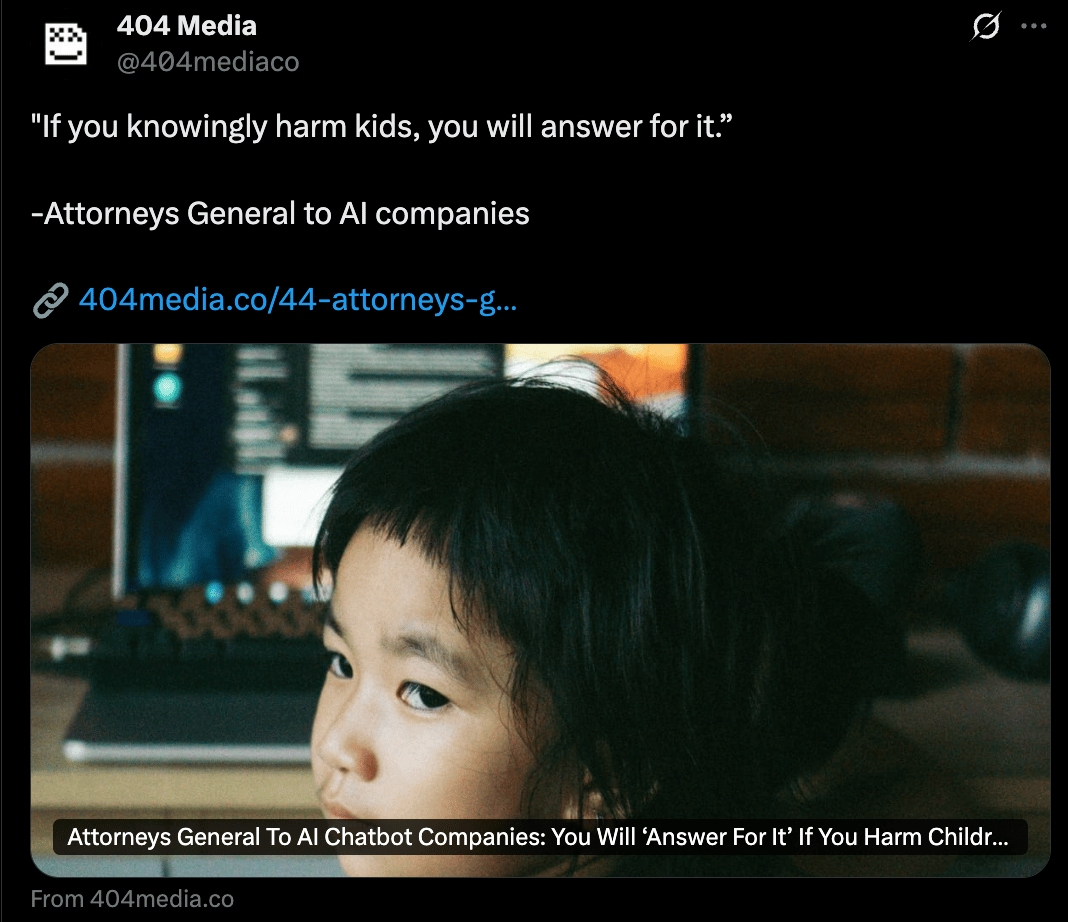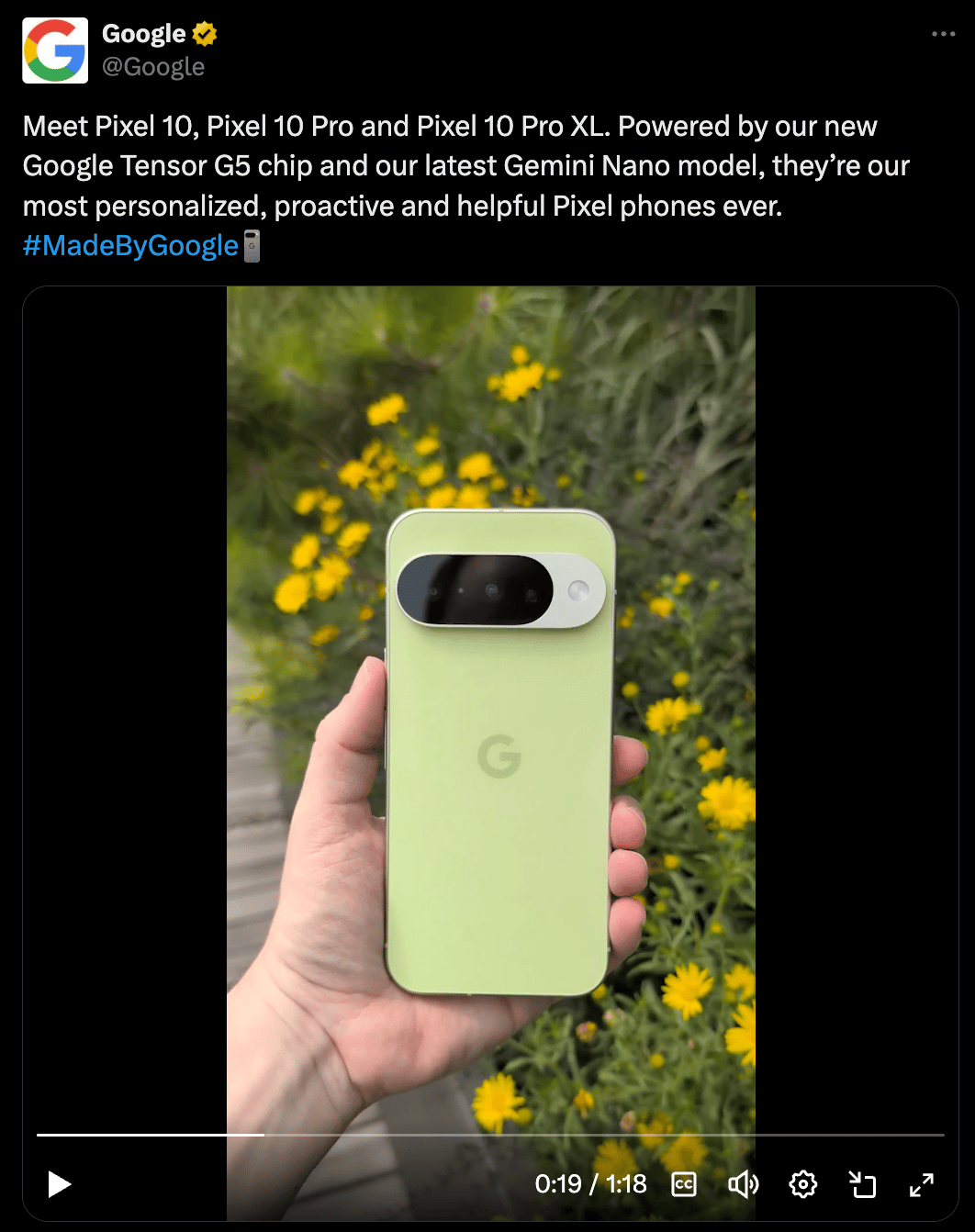Hello AI Enthusiast,
After a short break, our newsletter is back with some new AI developments. This week we're covering attorneys general warning AI companies about harming kids, a MIT study showing why employees secretly use ChatGPT while expensive enterprise AI gathers dust, and Google's new phones packed with AI features. AI keeps moving faster than anyone can manage it.
But before we dive in, join us in 30 minutes live at 6 PM CEST as we build an AI lead research agent that improved our sales process. We'll be using OpenAI's models to create an agent that researches prospects, analyzes companies, and delivers insights to our team's Slack. No theory, no slides. Just watch us build it. Register here.
The Big Picture 🔊
AI Companies Face Heat Over Vulnerable User Safety
Forty-four U.S. attorneys general warned major AI companies this week they'll "answer for it" if they harm children, citing reports of Meta's chatbots engaging in sexual conversations with minors. Meanwhile, OpenAI admitted their safety systems fail during long ChatGPT conversations, as users increasingly seek mental health support through the platform. Both stories highlight how AI adoption has outpaced safety measures for vulnerable users.
Enterprise AI Fails While Workers Use Personal Tools
A MIT study shows 95% of enterprise AI pilots fail while 90% of workers successfully use personal ChatGPT and Claude for work. Companies waste money on rigid enterprise systems while employees create a "shadow AI economy" with flexible consumer tools that actually work.
Don't waste budget on AI systems your employees bypass. Our Corporate AI Training empowers your power users and builds strategic adoption plans that leverage what already works. Stop fighting the shadow AI economy, learn from it.
Google Launches AI-Heavy Pixel 10 Series
Google unveiled the Pixel 10 with extensive AI features including real-time camera guidance through Visual Overlays, proactive app suggestions via Magic Cue, AI photography coaching, and live call translation in multiple languages. The devices run on Google's new Tensor G5 processor and are the first phones to implement C2PA standards for identifying AI-edited photos.
Bits and Bobs 🗞️
OpenAI has made GPT-4o available again for all paying ChatGPT users, along with access to GPT-4.1, o3, and o4-mini. New updates for ChatGPT include added control options with "Auto," "Fast," and "Thinking" modes for GPT-5.
ChatGPT Go is a new, low-cost subscription available in India that offers enhanced access to popular ChatGPT features and multimodal tools, for ₹399/month.
Microsoft Excel's new COPILOT function, powered by OpenAI's GPT-4.1-mini, allows users to classify feedback in spreadsheets using AI.
Microsoft's new Copilot 3D feature in preview allows users to convert 2D images into 3D models.
Elon Musk's xAI has open-sourced its Grok 2.5 model, previously their leading AI model, making it freely available to the public.
Anthropic has introduced a new memory function for its Claude chatbot, allowing users to reference past conversations without starting over.
Google claims its Gemini AI is now more energy-efficient, cutting carbon and water use for text prompts while developing new ways to measure environmental impact.
Meta has entered a six-year agreement with Google focusing on artificial intelligence infrastructure, highlighting Meta's need for extensive cloud resources.
The U.S. Government Services Administration is partnering with OpenAI to provide federal agencies access to ChatGPT Enterprise for $1 over the next year.
The U.S. government is investing $8.9 billion in Intel, reflecting confidence in the company's role in expanding the domestic semiconductor industry.
LOLgorithms 😂
Apparently building smartphones works better than just announcing them.
That's a wrap on our newsletter! Before you go, here’s a quick recap of our offerings:
AI Academy Membership: Get 12 months of access to all our cohort-based programs, live webinars, on-demand courses, and tutorials.
AI Agent Bootcamp: Accelerate processes and solve business problems by mastering prompts and building AI Agents, without coding.
Practical Introduction to ChatGPT: A free course on using ChatGPT confidently, understanding its workings, and exploring its potential.
Customized Corporate Training: Equip your team with the skills they need to unlock the potential of AI in your business.
Catch you next week! 👋







